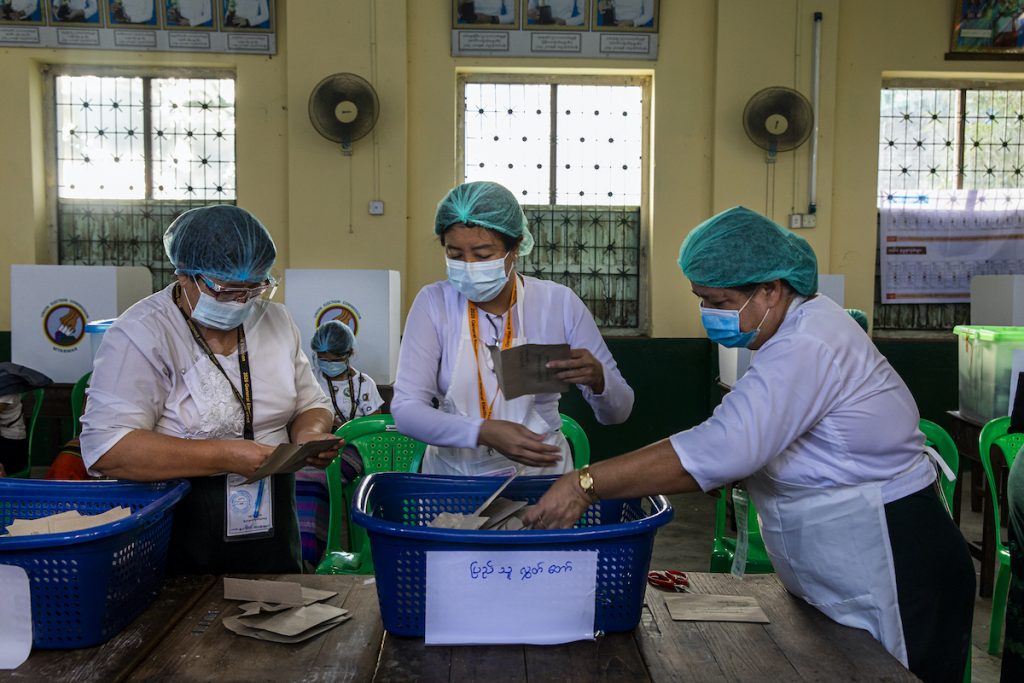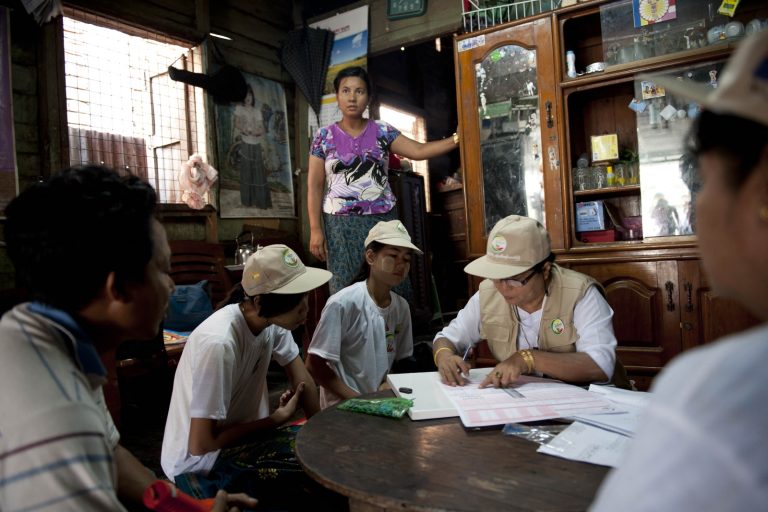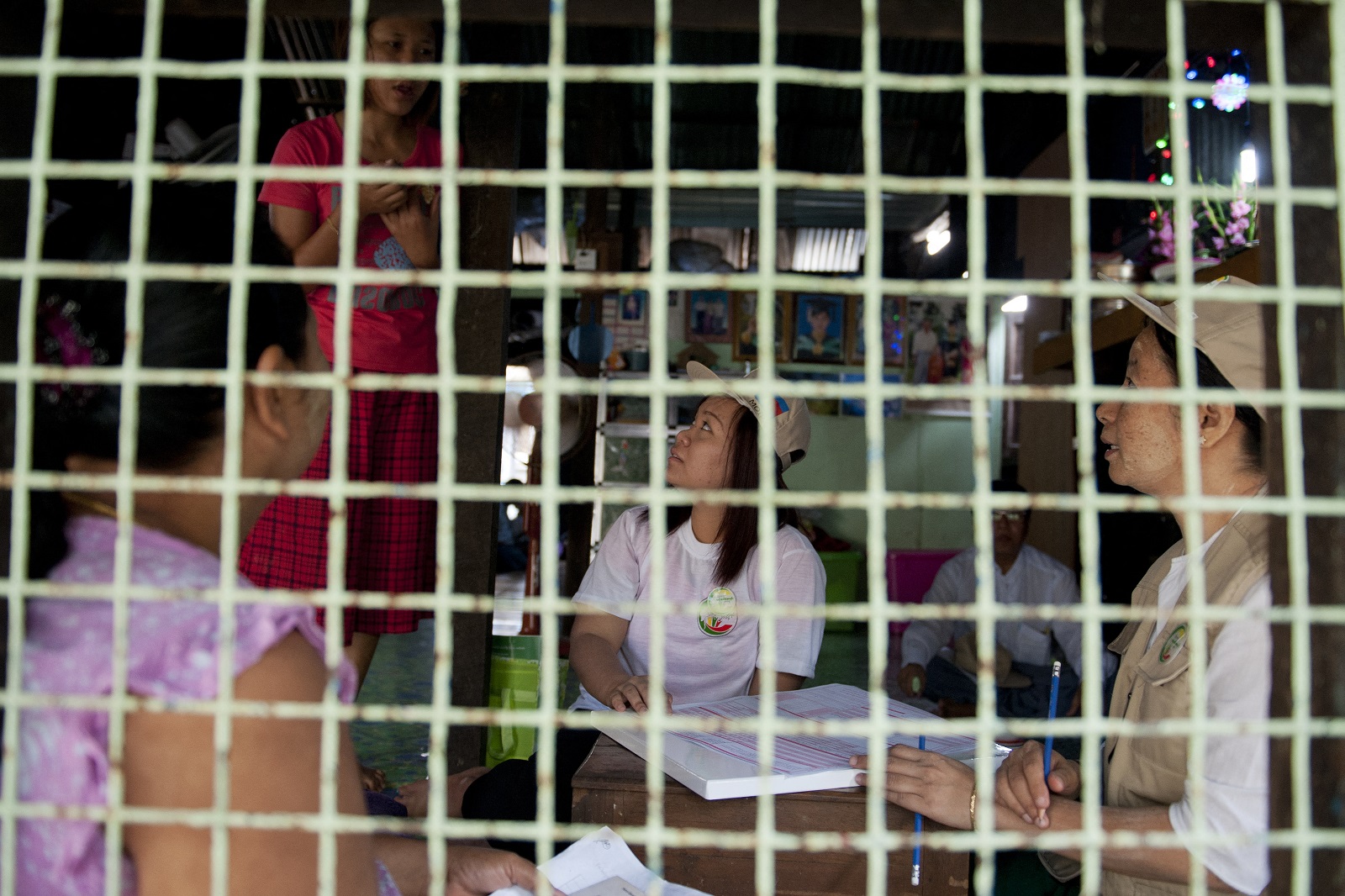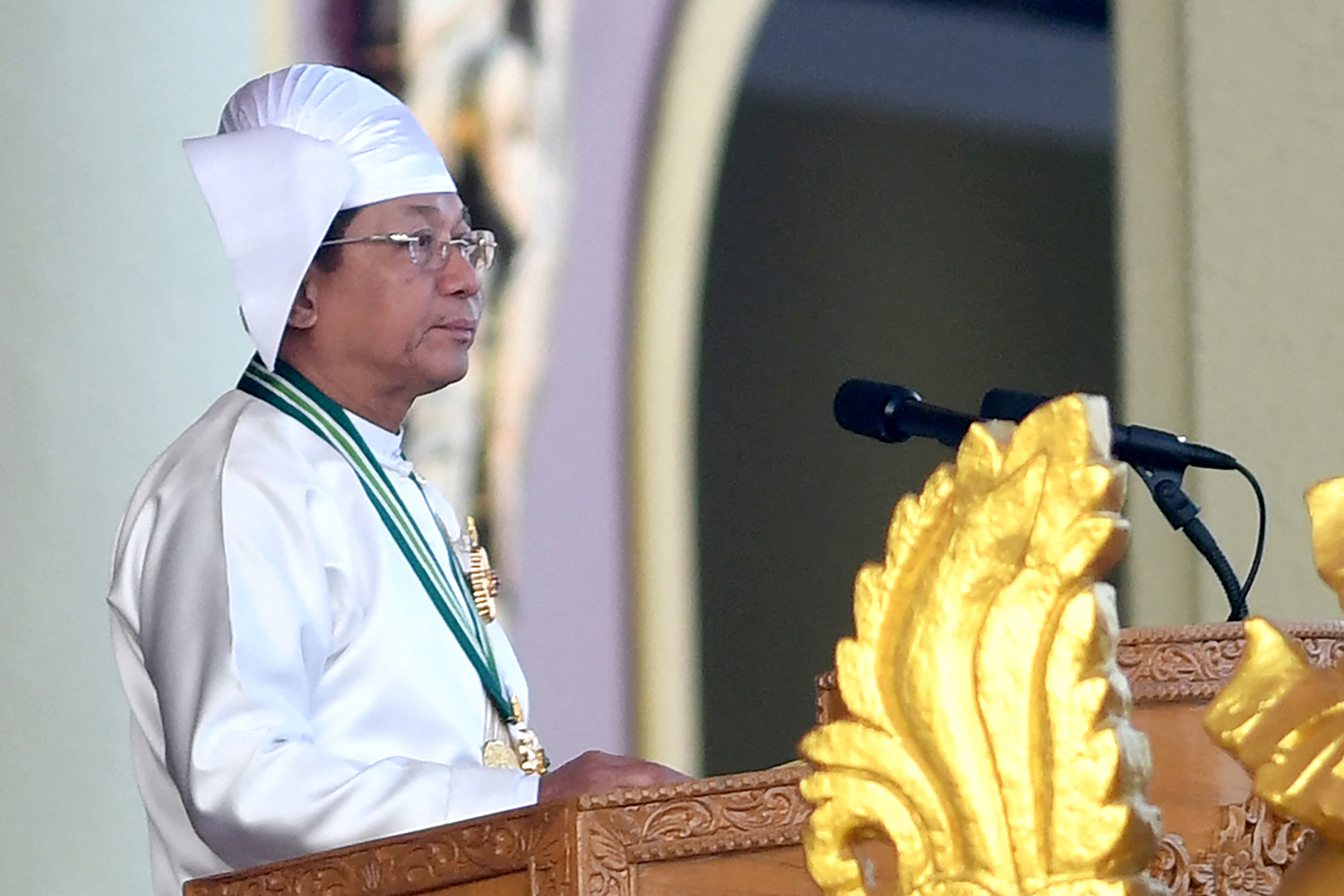The Union Election Commission’s disturbing behaviour towards journalists stirs memories of military rule, when it was dangerous to question those in authority.
By PYAE SONE AUNG | FRONTIER
I spent most of election day working the phones from the Frontier newsroom in Yangon, calling contacts in Mandalay Region and Chin and Kachin states to see how voting was going there. Apart from the inconvenience of long lines due to higher-than-expected turnout – citizens everywhere were determined to vote despite the risk of COVID-19 – things seemed to be going well.
That evening, I turned my attention to Yangon. Frontier photojournalist Hkun Lat and I walked across to Mingalar Taung Nyunt Township’s polling station No 5, in a high school on Upper Pansodan Road, to watch and report on the counting of votes.
The school’s front gate was locked and a policeman stood guard outside. I let two men behind the gate know we were journalists and asked them to let us in. I did not expect this request to surprise them, but it did.
“Let me get permission from the teacher, who is a polling station officer,” one said.
“Why not?” I thought. “That’ll only take a minute.”
They returned 15 minutes later saying we could come in, but we could not disturb the teachers by taking photos or by asking questions – in other words, by doing our jobs. But as they began to open the gate, they were stopped by an election volunteer who told them not to let us in, that the teachers felt “uncomfortable” having us watch. Soon everyone had disappeared back behind the walls of the school compound, and the gate remained locked.
About 20 minutes later, one of the volunteers came back, saying he’d contacted the chair of the township election sub-commission, who had told him to let us in but not allow us to take photos. He checked our press passes for a few more minutes before letting us in.
Once inside, I called the person who he had claimed was the township sub-commission chair. I wanted to ask why we’d been denied entry even though we had accreditation from the district election sub-commission. To my surprise, it wasn’t the township sub-commission chair who answered the phone: it turned out to be just a ward administrator. In the end he said we could take photos.
I asked the man who had given me the number, “Why did you say he’s chair of the township election sub-commission? And why did you stop us from taking photos?” He mumbled an incoherent response and seemed nervous.
We were directed to a classroom, where three uniformed teachers were counting advance votes. They were surrounded by volunteers, representatives of the candidates, and two international observers who also all seemed to have been told not to take photos. As soon as Hkun Lat began snapping images, so did they.
We went from there to several polling stations in South Okkalapa Township, where the welcome was warmer but the cameras still frowned upon. Volunteers were sour-faced about being photographed. After 10 or 15 minutes they told Hkun Lat to stop.
We left South Okkalapa about 8:30pm and headed to the National League for Democracy headquarters on Shwegonedine Road in Bahan Township, where thousands of party supporters were already celebrating an apparent NLD victory. In the jubilant crowd I saw photojournalist friends who shared similar stories about being denied permission to do their jobs, and of being shouted at by gatekeepers.
At a UEC news conference on November 11, I intended to ask about the hostility shown toward journalists at some polling stations, and the inadequate COVID-19 control measures many had observed. My hopes for a civil exchange were quickly dashed when UEC spokesperson U Myint Naing got into a heated exchange with another reporter.
For decades, when the country was under military dictatorship, ordinary people feared anyone in uniform. Bowing down to authority – even those in the most insignificant of positions – became a reflex. Power was abused at all levels and submission internalised. This acquiescence was reinforced in movies, text books and in social relations.
For me, the UEC news conference was a shocking reminder of those days.
When a female reporter asked Myint Naing why polling stations in Naw Pyi Taw weren’t enforcing social distancing guidelines, he became defensive and aggressive. When she mentioned she’d interviewed polling station officials on election day, he even threatened to have her charged with “obstructing a public servant while [they’re] discharging their duties”.
Consider that supposed offence – “obstructing a public servant in the discharge of their duties”. To criminalise such an act would be to punish those who refuse to turn a blind eye to corruption and the abuse of power – in short, to start returning to life under military rule, when those in power were beyond questioning. It’s also an attempt to depoliticise the public, to warn them off any political activity beyond merely voting.
The current UEC has form here: it has also threatened to file charges against no-vote campaigners for supposedly disrupting the election. If it did, it would be using a clause the military regime inserted in the law to prevent a boycott campaign taking root in 2010, when the National League for Democracy refused to participate in the general election that year. Think about that for a minute.
The UEC cannot fulfill its mandate to deliver free and fair elections, and thereby strengthen democracy, unless it cooperates with the other stakeholders, including the media and independent poll monitors, and accepts a diversity of views. Having individuals on the UEC who behave as Myint Naing did on November 11 is a genuine danger to democracy.
Military rule gave us a series of dictators. Sadly, this so-called transition to democracy seems just as capable of doing the same.







